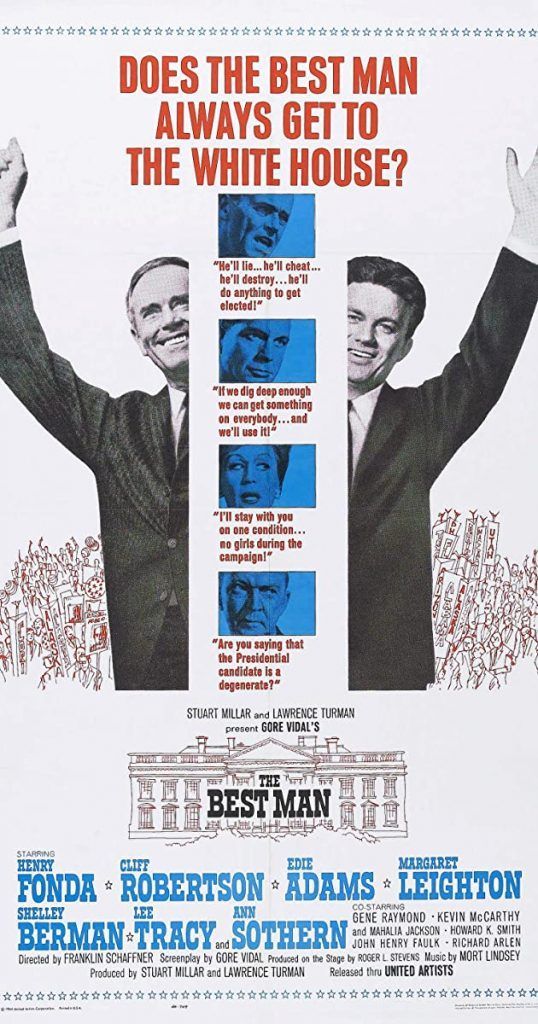
“There are no ends, Joe—only means. What really matters is how you do things, and how you treat people. Not some ideal goal for society.”
Thus says one retired president to a front-running candidate in 1964’s gripping political drama “The Best Man,” brilliantly scripted by novelist Gore Vidal.
While Lycoming Critic’s Corner generally runs a list of movies on some contemporary theme each month, I’ve chosen to highlight this film alone during the current election season. Not only does it remain intensely relevant, but also, it’s running free on YouTube—in its entirety.
It has a cast to die for (of which more later), but by far its greatest strength is Vidal’s writing, with dialog so sharp and pungent, I’ve had trouble picking out the best sample lines:
“Power is not a toy that we give good children; it’s a weapon—and the strong man takes it and uses it.”
“He has all the characteristics of a dog—except loyalty.”
“And so one by one, these compromises, these small corruptions, destroy character.”
“No man with that awful wife and those ugly kids could be anything but normal.”
“You have no sense of responsibility toward anybody or anything. And that is a tragedy in a man. And it is a disaster in a president.”
Most of these are spoken by Henry Fonda’s Bill Russell, a former secretary of state who is fighting to win the presidential nomination. Russell’s main opponent is Joe Cantwell—played by a dashing young Cliff Robertson. In this film that was released during the contentious 1964 campaign, the two duke it out at their party’s convention—though the film refuses to identify which party is involved, or which candidates may have inspired its main characters.
Russell is a man of conscience, an intellectual along the lines of Adlai Stevenson—though part of the man’s present political plight is that his wife wants to leave him in view of his frequent infidelity. Cantwell bills himself as a rags-to-riches common man, though in reality he is as ruthless as a machine gun. Because of this, Russell will repeatedly face the dilemma that embattles so many other politicians: How unscrupulous can you be in order to defeat an unscrupulous man?
Vidal’s answer may surprise you—but in any case, I can’t think of another film that faces this issue with such clarity and moral force.
In addition to its startling ethics, “The Best Man”—which takes its title from the saying about who should win—also features fantastic acting in many smaller roles: Ann Sothern as an infuriating shrew who thinks she represents all women; Margaret Leighton as Russell’s wife; comic Shelley Berman in a brief but unforgettable appearance as one of Cantwell’s old Army pals; and Lee Tracy, Oscar-nominated for a role that was his last in a long, impressive Hollywood career.
Another Oscar nod should have gone to Vidal, whose trenchant script has really stood the test of time. Take this line, for instance, which Tracy’s ex-prexy says to Russell: “Those rumors about you and your lady friends—they won’t do you any harm.”
I guess things haven’t changed very much.
103 min. Not rated.
Smith is a writer, speaker and teacher. The above article is adapted from his fourth and latest book, “The Best Movies You Never Saw.”




